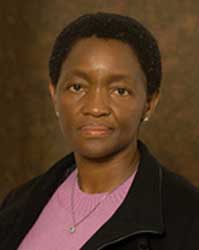Social Development Minister Bathabile Dlamini has welcomed the preliminary findings on Early Childhood Development (ECD) centres, saying they will make a valuable contribution to government's strategy to improve ECD services in the country.

Social Development Minister Bathabile Dlamini. Image: GCIS
The department undertook an audit, which is expected to be completed by the end of March, to get information on the nature and extent of ECD provisioning, services, resources and infrastructure in order to inform and support on-going policy and planning initiatives.
According to a statement released by the department, key issues on the provisioning of childhood development services have emerged from the preliminary findings of the audit.
A comparative analysis of six provinces, where the audit is 50% or more complete, shows that ECD centres are battling with issues of inadequate infrastructure, inadequate equipment and supplies, a lack of practitioners and poorly trained practitioners, as well as inadequate health and safety measures, among other issues.
The comparative analysis includes the Eastern Cape, KwaZulu-Natal, Limpopo, North West, Northern Cape and Western Cape provinces. The audit targets a total of 19,971 ECD centres nationwide - registered and unregistered.
Infrastructure
According to the preliminary findings, nearly a third (30.8%) of ECD centres have been built for the purpose of providing services. For those centres operating from improvised locations, more than 17% are operated from a house or part of a house, including a garage, and 10% operate from a shack.
It has been found that 42% of ECD centres require urgent maintenance. Most of these centres are in the Eastern Cape and KwaZulu-Natal.
The analysis found that virtually none of the ECD practitioners have a tertiary qualification. Over 43% of practitioners have below Grade 12 education, while about 40% have completed matric.
"The highest number of those with a matric certificate is in KwaZulu-Natal (49%). In the Western Cape, 33% of practitioners have a matric certificate. However, the Western Cape has the highest number of practitioners with post-matric diplomas (5%)," the audit found.
On salaries, the audit found that the salaries of practitioners make up 49% of total expenditure in ECD centres for all provinces.
Services offered
With regard to the curriculum offered, 91% of the ECD centres offer an unrecognised curriculum, while only about 8% offer a recognised curriculum. Moreover, 40% of ECD centres do not have sufficient learner support material.
"When it comes to providing meals for learners, the analysis found that most ECD centres offered meals, with breakfast and lunch being the most commonly served. About 40%of ECD centres don't have sufficient learner support material, these are mostly found in the North West, Limpopo, KwaZulu-Natal and Eastern Cape provinces," the report noted.
On issues of governance, the comparative analysis found that 90% ECD centres have management committees even though only 50% of the ECD centres were formally registered (20% of audited ECD centres are not registered, while conditional sites in the process of registration make up 30% of audited ECD centres).
With respect to disability related matters, it has been found that assessing children for disabilities is relatively uncommon in ECD centres.
Dlamini said that the information provided by this audit will help government meet its objectives.
"The ECD programmes must provide appropriate developmental opportunities and care for our children, ensuring that their emotional, cognitive and physical development needs are met throughout their early lives," said Dlamini.
The Children's Act stipulates a number of norms and standards that an ECD centre must meet, these include:
- A safe environment for children;
- Proper care for sick children or children that become ill;
- Adequate space and ventilation;
- Safe drinking water;
- Hygienic and adequate toilet facilities;
- Safe storage of anything that may be harmful to children;
- Access to refuse disposal services or other adequate means of disposal of refuse generated at the facility;
- A hygienic area for the preparation of food for children;
- Measures for the separation of children of different age groups;
- The drawing up of action plans for emergencies;
- The drawing up of policies and procedures regarding health care at the facility.








































